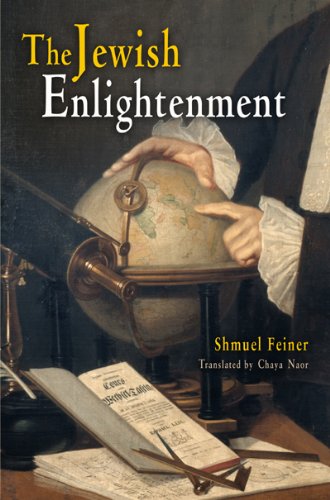

Most ebook files are in PDF format, so you can easily read them using various software such as Foxit Reader or directly on the Google Chrome browser.
Some ebook files are released by publishers in other formats such as .awz, .mobi, .epub, .fb2, etc. You may need to install specific software to read these formats on mobile/PC, such as Calibre.
Please read the tutorial at this link: https://ebookbell.com/faq
We offer FREE conversion to the popular formats you request; however, this may take some time. Therefore, right after payment, please email us, and we will try to provide the service as quickly as possible.
For some exceptional file formats or broken links (if any), please refrain from opening any disputes. Instead, email us first, and we will try to assist within a maximum of 6 hours.
EbookBell Team

0.0
0 reviewsAt the beginning of the eighteenth century most European Jews lived in restricted settlements and urban ghettos, isolated from the surrounding dominant Christian cultures not only by law but also by language, custom, and dress. By the end of the century urban, upwardly mobile Jews had shaved their beards and abandoned Yiddish in favor of the languages of the countries in which they lived. They began to participate in secular culture and they embraced rationalism and non-Jewish education as supplements to traditional Talmudic studies. The full participation of Jews in modern Europe and America would be unthinkable without the intellectual and social revolution that was the Haskalah, or Jewish Enlightenment.
Unparalleled in scale and comprehensiveness, The Jewish Enlightenment reconstructs the intellectual and social revolution of the Haskalah as it gradually gathered momentum throughout the eighteenth century. Relying on a huge range of previously unexplored sources, Shmuel Feiner fully views the Haskalah as the Jewish version of the European Enlightenment and, as such, a movement that cannot be isolated from broader eighteenth-century European traditions. Critically, he views the Haskalah as a truly European phenomenon and not one simply centered in Germany. He also shows how the republic of letters in European Jewry provided an avenue of secularization for Jewish society and culture, sowing the seeds of Jewish liberalism and modern ideology and sparking the Orthodox counterreaction that culminated in a clash of cultures within the Jewish community. The Haskalah's confrontations with its opponents within Jewry constitute one of the most fascinating chapters in the history of the dramatic and traumatic encounter between the Jews and modernity.
The Haskalah is one of the central topics in modern Jewish historiography. With its scope, erudition, and new analysis, The Jewish Enlightenment now provides the most comprehensive treatment of this major cultural movement.